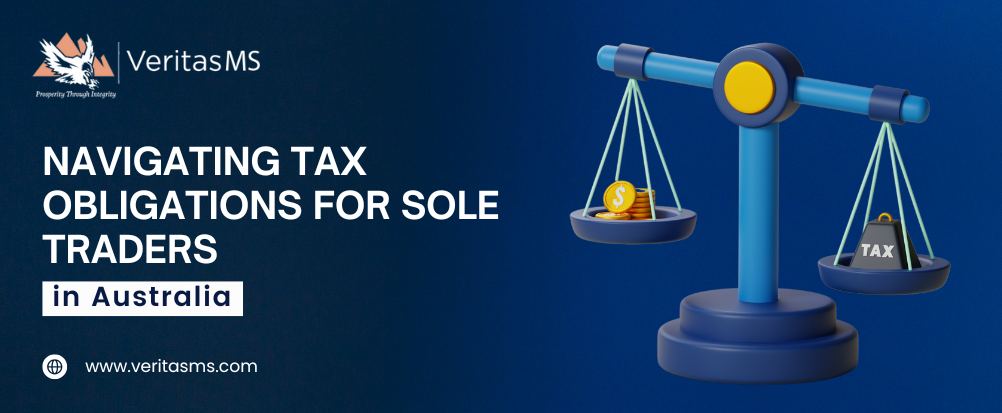Operating as a sole trader in Australia offers flexibility and independence, but it also comes with specific tax obligations that must be carefully managed to avoid penalties and ensure compliance. Here’s a comprehensive guide to help sole traders understand and navigate their tax responsibilities effectively.
1. Understanding Sole Trader Taxation
As a sole trader, you and your business are considered a single entity for tax purposes. This means your business income is treated as your personal income and is taxed at individual income tax rates.
Key points to note:
- You’ll need to lodge an individual tax return, including all business income and expenses.
- You can claim deductions for expenses directly related to running your business.
- If your annual turnover exceeds $75,000, you must register for Goods and Services Tax (GST).
2. Registering for an Australian Business Number (ABN)
An Australian Business Number (ABN) is essential for sole traders. It identifies your business and allows you to:
- Register for GST if applicable.
- Claim GST credits.
- Avoid having amounts withheld from payments to your business.
You can apply for an ABN online through the Australian Business Register (ABR).
3. Keeping Accurate Records
Maintaining accurate financial records is crucial for meeting your tax obligations. As a sole trader, you should:
- Keep detailed records of income and expenses for at least five years.
- Use accounting software or hire a bookkeeper for efficient record-keeping.
- Ensure you have documentation for all deductions claimed.
4. Understanding GST Obligations
If your business turnover exceeds $75,000 annually, registering for GST is mandatory. Once registered, you need to:
- Charge GST on taxable goods and services.
- Lodge Business Activity Statements (BAS) to report and pay GST.
- Claim GST credits for business-related purchases.
5. Pay-As-You-Go (PAYG) Instalments
If you expect to owe more than $500 in tax at the end of the financial year, the Australian Taxation Office (ATO) may require you to make PAYG instalments. These are regular prepayments towards your expected tax liability, helping you manage cash flow and avoid a large tax bill.
6. Claiming Tax Deductions
Sole traders can claim deductions for expenses directly related to earning income. Common deductible expenses include:
- Home office costs if you work from home.
- Equipment and tools required for your business.
- Travel and vehicle expenses for business purposes.
- Marketing, advertising, and professional development costs.
7. Superannuation Contributions
While sole traders are not required to pay superannuation for themselves, making voluntary contributions can provide financial security for the future. Additionally, contributions may be eligible for tax deductions.
8. Meeting Deadlines
To avoid penalties, ensure you meet all tax-related deadlines, including:
- Lodging your annual tax return by October 31 (or later if using a registered tax agent).
- Submitting BAS on time for GST-registered businesses.
9. Seeking Professional Advice
Navigating tax obligations can be complex, especially for new sole traders. Consulting with a tax professional or accountant can help you:
- Identify all eligible deductions.
- Ensure compliance with ATO regulations.
- Plan your finances to minimize tax liability.
Partner with VeritasMS for Financial Clarity
Managing tax obligations doesn’t have to be overwhelming. At VeritasMS, we specialize in providing tailored financial and accounting solutions for sole traders. From accurate record-keeping to expert tax advice, we ensure your business stays compliant while maximizing your financial potential.
Ready to simplify your tax obligations? Contact VeritasMS today and take the first step towards stress-free business management.

